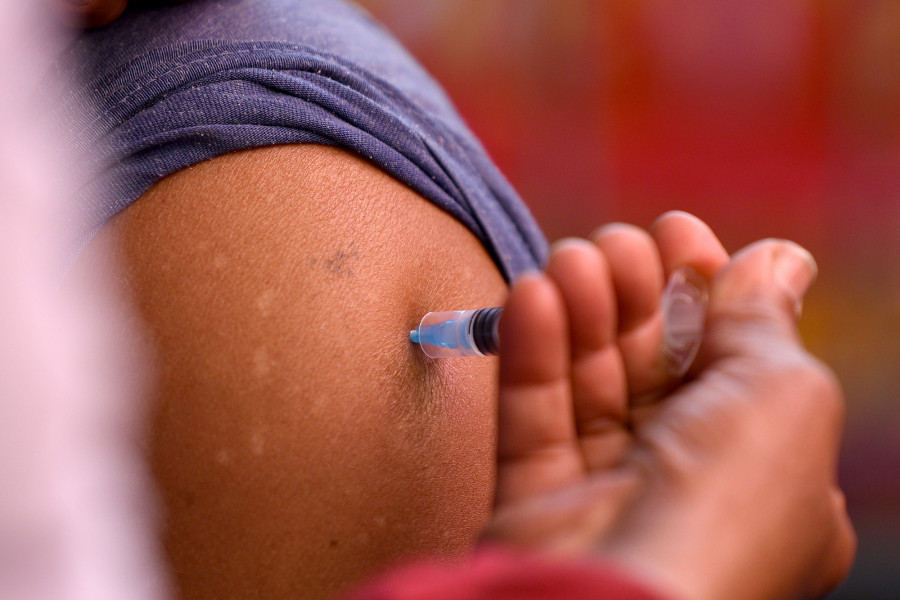Health
Immunisation workers to be trained on using preloaded Chinese jab
The government plans to vaccinate those between 60 and 64 years of age from June 8 in all 77 districts.
Arjun Poudel
Immunisation workers throughout the country will be provided training on how to use the pre-loaded Covid-19 vaccine gifted by China.
Of the 1 million doses of BBIBP-CorV vaccine developed by Sinopharm—an affiliate of the state-backed pharmaceutical giant Sinopharm, provided to Nepal by China under grant assistance, 200,000 were pre-loaded in syringes.
“We have to provide training to health workers, so we are organising a virtual orientation programme,” Dr Jhalak Gautam, the chief of the National Immunisation Programme, told the Post. “We are also making other preparations to launch an immunisation drive.”
The grant of one million doses of Covid-19 vaccines from China arrived in Kathmandu on Tuesday and Wednesday. Along with the vaccine, the Chinese government has also provided an equal number of syringes.
The Ministry of Health and Population has decided to inoculate those aged between 60 and 64 years throughout the country with the Chinese vaccines from June 8. It is estimated that the population between 60 and 64 years is around 850,000. Around 100,000 doses of the vaccine provided earlier by China are in stock.
On March 29, China had provided 800,000 doses of the vaccine. The second dose of the vaccine will be secured from the existing doses. Officials said not everyone will seek inoculation with the Chinese vaccine this time as many have already been vaccinated with Covishield vaccine and many are awaiting the second dose of the vaccine.
Immunisation programme will be launched in all 77 districts throughout the country, officials said.
“We will start supplying the vaccine to the provincial stores from Friday,” Dr Tara Nath Pokhrel, director at the Family Welfare Division, which is responsible for organising the immunisation programme, told the Post. “Provincial stores will supply the vaccine to the district stores as per the need before the start of the immunisation programme.”
As new cases are still surging throughout the country and health workers are engaged in other tasks — sample collection, antigen testing, contact tracing and case management among others — the number of immunisation centers will be fewer this time, officials said.
“We have decided to allow the district authorities to decide the number of immunisation centers,” said Pokhrel. “This time there will be fewer immunisation centers than those in the second phase of the immunisation drive launched between March 7 and 15.”
Every month, over 16,000 immunisation centres operate throughout the country for the immunisation of children. Some of these centres will also be used for Covid-19 immunisation, officials said.
Covid-19 immunisation programme is expected to continue for 10 days.
Nepal launched its first Covid-19 immunisation drive on January 27 with the one million doses of Covishield that India had provided under grant assistance. It also received 348,000 doses from the COVAX facility. Of the 2 million doses of vaccines that Nepal bought from Serum Institute half has been delivered.
It is unclear when they will get them since the Serum Institute of India is yet to supply the 1 million doses that Nepal has already paid for. India banned the export of vaccines after the country suffered a devastating second wave.
Those over 65 had got their first dose between March 7 and 15 and should have received their second dose from May 16. But the government extended the gap between the two doses to 12 to 16 weeks.




 11.84°C Kathmandu
11.84°C Kathmandu















